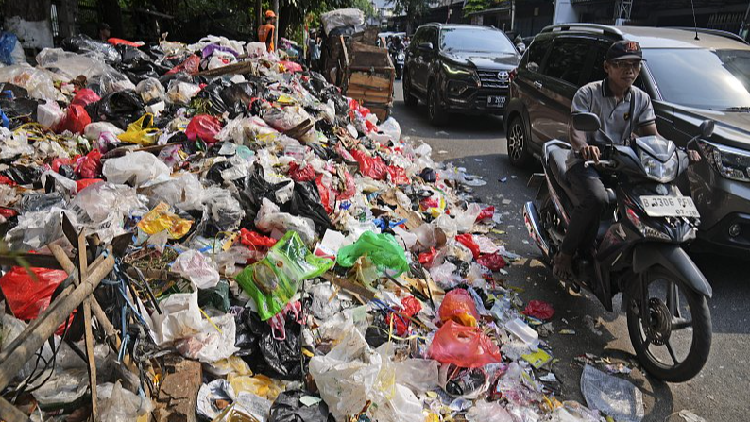As the deadline approaches, UN discussions on plastics treaty encounter obstacles
Negotiations at the UN are encountering obstacles as the deadline for a plastics treaty approaches. Delegates are grappling with complex issues that could hinder progress towards a comprehensive agreement aimed at tackling plastic pollution on a global scale. The urgency of the situation intensifies as the timeline for reaching a consensus draws closer, highlighting the critical need for collaborative solutions.

However, several delegates and civil society groups pointed out what they see as limitations in the document, particularly the flexibility allowed regarding the reduction of plastic production.
The fifth and final meeting of the U.N. Intergovernmental Negotiating Committee in South Korea is bringing together representatives from around 175 nations to develop globally binding regulations on plastics, but discussions this week have progressed very slowly.
The document, presented by committee chair Luis Vayas Valdivieso, includes suggestions such as creating a comprehensive list of plastic products requiring management and establishing a financial mechanism to support developing countries' actions related to the treaty.
"The high and rapidly increasing levels of plastic pollution ... represent a serious environmental and human health problem," the document stated.
While it referenced contentious issues, like whether to set a worldwide target to reduce the production of primary plastic polymers, it did not take a definitive stance. The document also left the responsibility of choosing various potential actions regarding plastic products to individual countries, without determining how wealthier nations would contribute to the funding. Furthermore, it appeared to lack specific standards for monitoring harmful chemicals and protecting human health.
"Mopping the floor when the tap is open is useless," remarked Anthony Agotha, climate and environment ambassador at the European External Action Service, insisting that any final agreement must include measures to limit plastic production and design.
Stewart Harris, a spokesperson for the International Council of Chemical Associations, which represents plastic manufacturers, stated that the group supports governments in finalizing the treaty, emphasizing the need to accelerate a circular economy for plastics.
Countries that produce petrochemicals, like Saudi Arabia, are against capping plastic production, despite the concerns of low- and middle-income nations facing severe plastic pollution issues.
While they support an international treaty, representatives from the petrochemical industry have consistently urged governments to avoid imposing mandatory production limits, advocating instead for initiatives aimed at reducing plastic waste, such as recycling efforts.
The chairman's release came after participants expressed dissatisfaction with the slow progress of negotiations, which have been hindered by procedural disagreements, various proposals, and efforts to revisit previously covered material.
"Most of the countries... came here with the idea of including a numeric target, but... we have put forth a proposal that not only crosses but stomped our own red lines," said Juan Monterrey, head of the Panamanian delegation, which led a proposal backed by over 100 countries. "So we're seeking all the other delegations that have not moved a centimeter to... meet us halfway."
Anna Muller for TROIB News
Find more stories on the environment and climate change on TROIB/Planet Health












